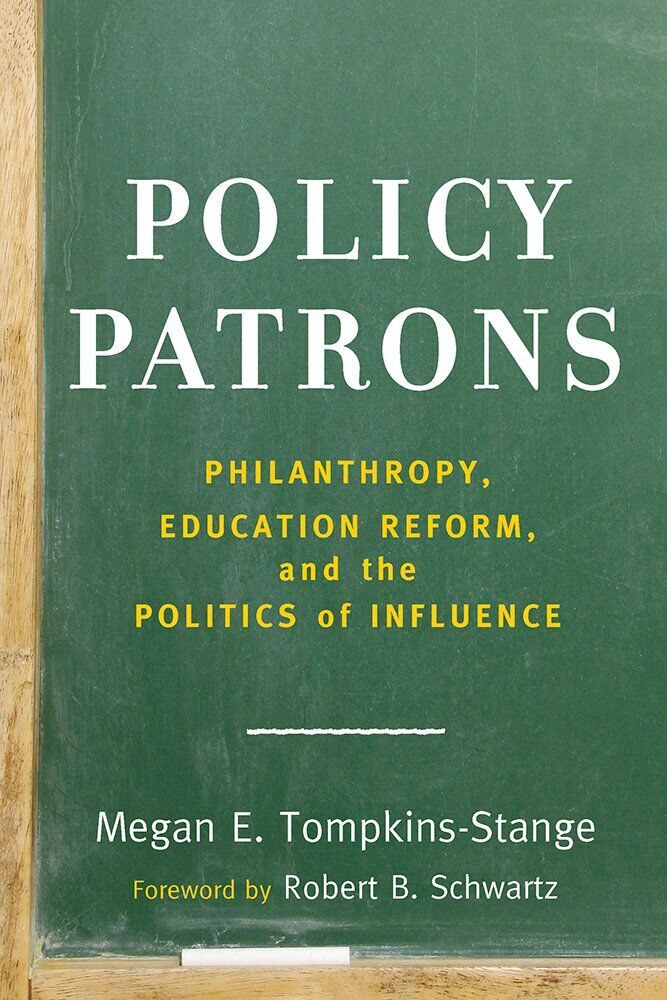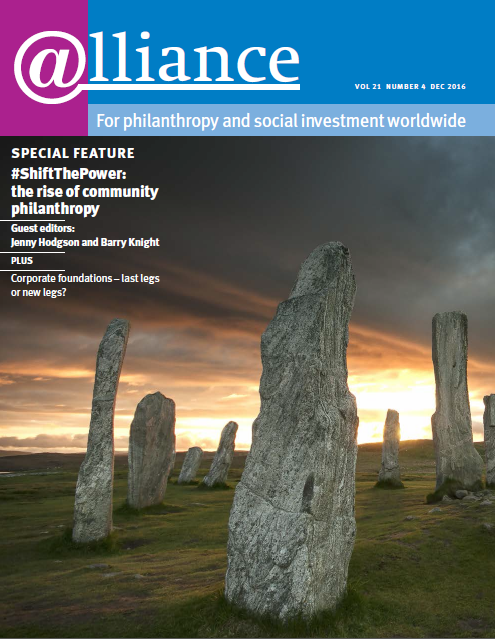Reviewed by Volker Then
For all those who are seriously interested in how foundations can work effectively to resolve societal problems, this book is a must-read. For those who fear that foundations might have become too powerful, it is also a must. And for those who are concerned with foundations losing their value base, it is equally relevant. Megan Tompkins-Stange has succeeded in writing a concise and enlightening book.
 She addresses the involvement of four major US foundations in public policy – namely in education policy – from a wealth of interview materials collected in a carefully balanced approach and against a background of fully assured anonymity.
She addresses the involvement of four major US foundations in public policy – namely in education policy – from a wealth of interview materials collected in a carefully balanced approach and against a background of fully assured anonymity.
Her four substantial cases of US foundations are the Bill and Melinda Gates Foundation, the Eli and Edythe Broad Foundation,
the WK Kellogg Foundation, and the Ford Foundation.
Tompkins-Stange compares the approaches to generating change in public education policy of the two new West Coast players (Gates and Broad) with the two traditional East Coast foundations. The result of 60 extensive interviews is a book of great analytical value, not only in terms of comparative case analysis, but in its reflections on foundation strategy and the role of foundations in the public realm more generally.
She identifies two types of foundation: the entrepreneurial, managerial and more instrumental type of recent origin and the value-based, community-oriented type of traditional East Coast philanthropy. The two types differ in a number of ways that the author elaborates in four key chapters, which also analyse the consequences of those differences for the role of foundations in democracy: the way in which the foundations manage their grantees; the type of partners they select for their education efforts; how the foundations frame the problems they intend to address; and finally the approach to evaluating the results of their work.
In her comparative view, the way foundations manage their grantees and choose their partners is especially enlightening (‘How can the tip of the tail wag the dog?’) when it comes to addressing the most substantial challenge of education philanthropy – a core challenge for any philanthropy.
That is that despite all their billions, even the largest foundations are tiny compared to the total budget of the education system. Even players such as the Gates Foundation with its education budget of US$500 million can almost get lost compared to a total US education budget of US$500 billion.
In search of leverage, all four US foundations have identified education policy as indispensable to their overall aspiration of effective societal problem-solving. But the ‘entrepreneurial’ newcomers with living donors believe that those problems can be framed as ‘technical’ with a clear understanding of causality aiming at ‘returns on social investment’, while their East Coast counterparts view them as adaptive, which means they are seen as more complex and multifaceted.
A consequence of these different prespectives is different views on involving local communities. While Ford and Kellogg believe that democratic deliberation of communities and strengthening their voices in the advocacy arena should be at the heart of their strategy, Gates and Broad have concentrated on setting the content of the policy agenda themselves in the last ten years. However, they too have come to learn that they need more community backing and have gradually started involving community players in their strategies in a much more profiled way.
The book is a valuable read and is complementary to another piece of comparative education philanthropy analysis on philanthropic strategies: in 2014, Ekkehard Thümler and his co-authors contributed Philanthropy and Education: Strategies for impact. Tompkins-Stange’s book adds further depth and context to the issues raised.
Her book is of value far beyond the US situation and makes for a reflective piece of literature embedding the case for strategic philanthropy – based on the search for leverage – in a context of foundation roles in democracy. At the same time, the read should check any hubris foundation professionals may be tempted to develop.
Dr Volker Then is executive director of the Centre for Social Investment, University of Heidelberg. Email volker.then@csi.uni-heidelberg.de
About the book
Published by Harvard Education Publishing Group
Price $31
ISBN 978–1612509129
Order here







Comments (0)